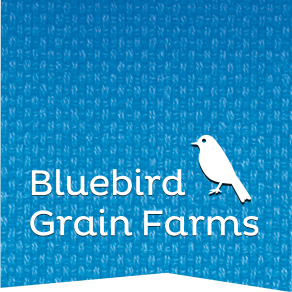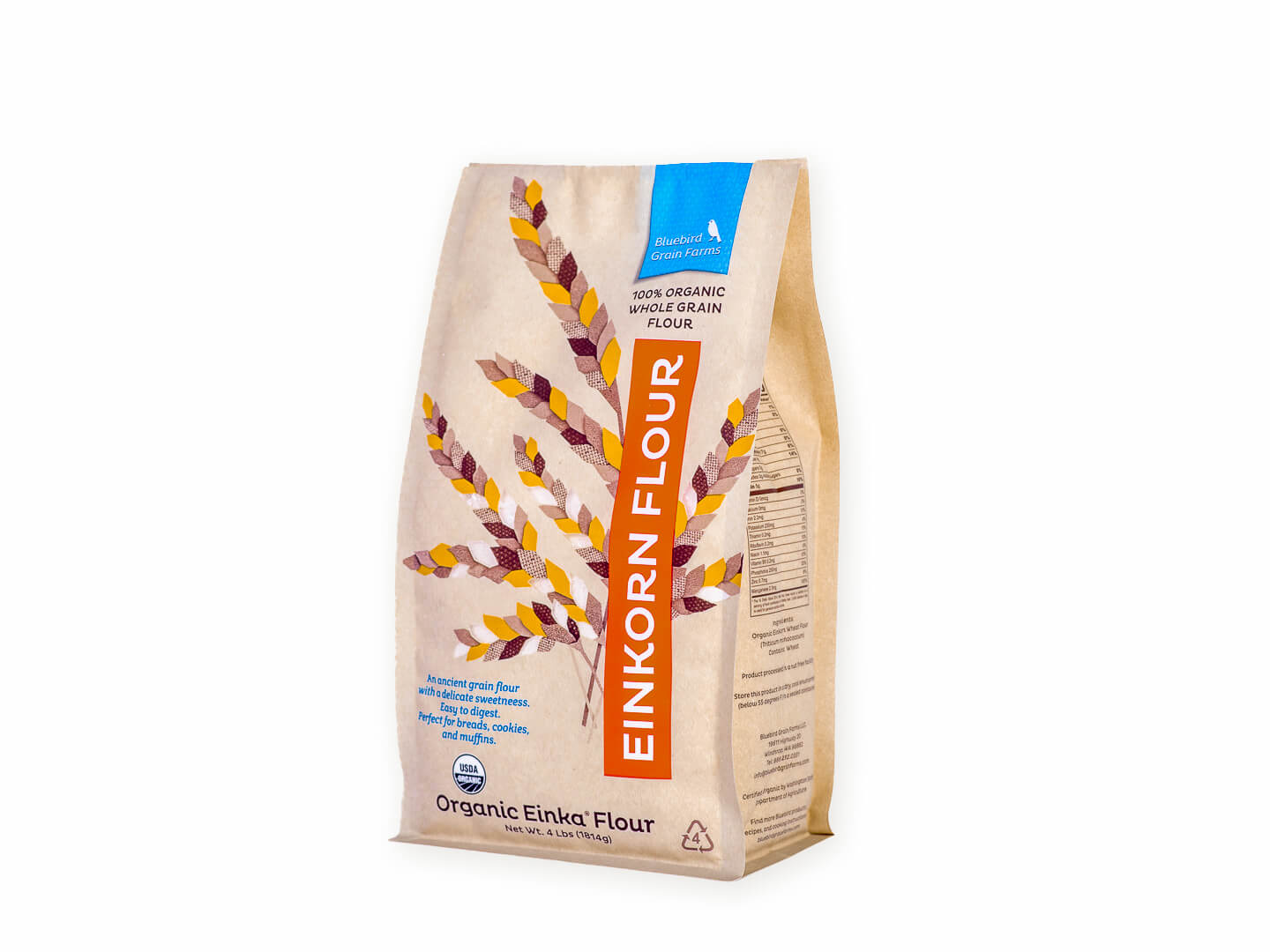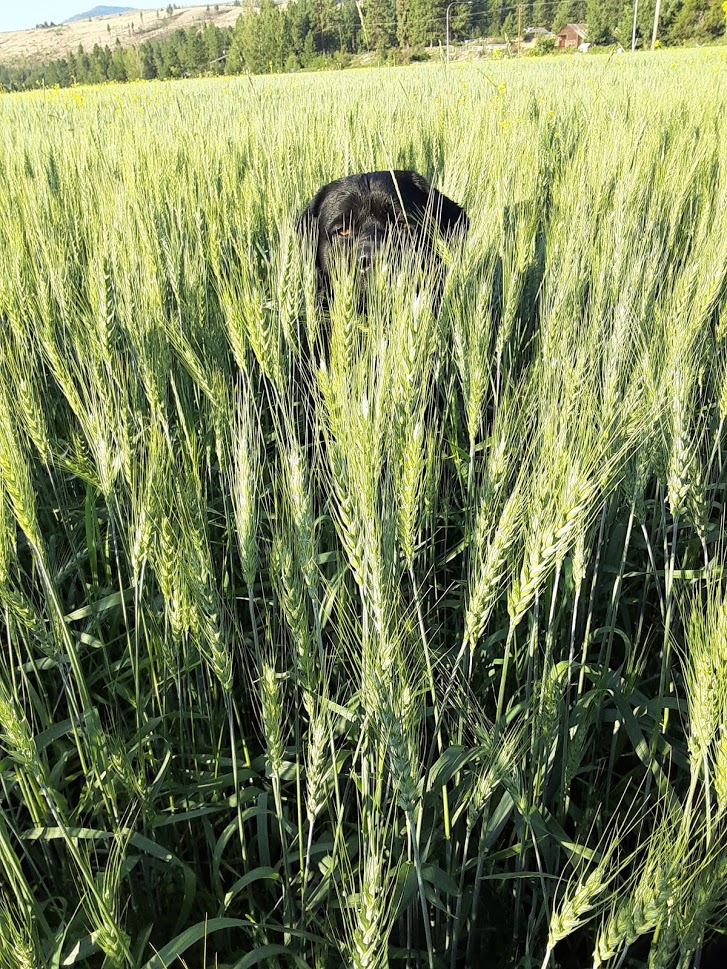
Despite the 9 hour absence from their mother, the swallow chicks lived! Their chirps grew needier and louder for days following my hasty return to “home base” with the John Deere a month ago and continued for a couple of weeks. Then, that fast, they fledged – leaving a streak of gone-by regurgitation on the cab window mixed with a few tail feathers. I’d guess there to be 3-4 chicks but maybe more? I’ve no idea of their fate from here, but the mumma’s choice of nesting cavities worked out… this time.
Other birds greet summer with zest: Clutches of quail, young grouse, flycatchers; wrens and robins and thrush and warblers. Hummingbird chicks have hit overdrive and nighthawks rip around after dark chasing the comet as temperatures heat up. Truth to tell, however, no bluebirds at our place this year? I’ll not assume this as any particular sign other than a generational lapse? Hmmm.
These crisp, mostly clear, 90+ degree days sanctify July here in Eastern Washington. At times these temps can be quite trying to work in but we are grateful for the absence of thunderstorms so far, which can bring the dreaded lightening and seasonal hail! By-pass us if you will please! And the heat units have doubled overnight to set big growth on all crops. The buckwheat cover crop grows inches a day while the wheat hits full pollination. I am adding the last round of irrigation on the wheat, and more frequently the buckwheat as it loves heat and water.
I use buckwheat as a cover crop some years for a variety of reasons, or more succinctly when a series of reasons accumulate. Buckwheat is a standby warm-season plant with almost instant germination (4 days) and it puts on a lot of biomass quickly before going to flower in 30-40 days. I use it when I want to do extra cultivation longer into the spring on a grain-free year, but still want to get something nutritious in the soil for summer. It is a great weed suppressant because with its large leaves and rapid growth, however, it isn’t just the “green manure” that we gain from buckwheat. Buckwheat also attracts lots of beneficial insects and it is a great miner of Phosphorus that the previous grain crop might not have reached. Thus, this important nutrient (P) is more available for the following crop.
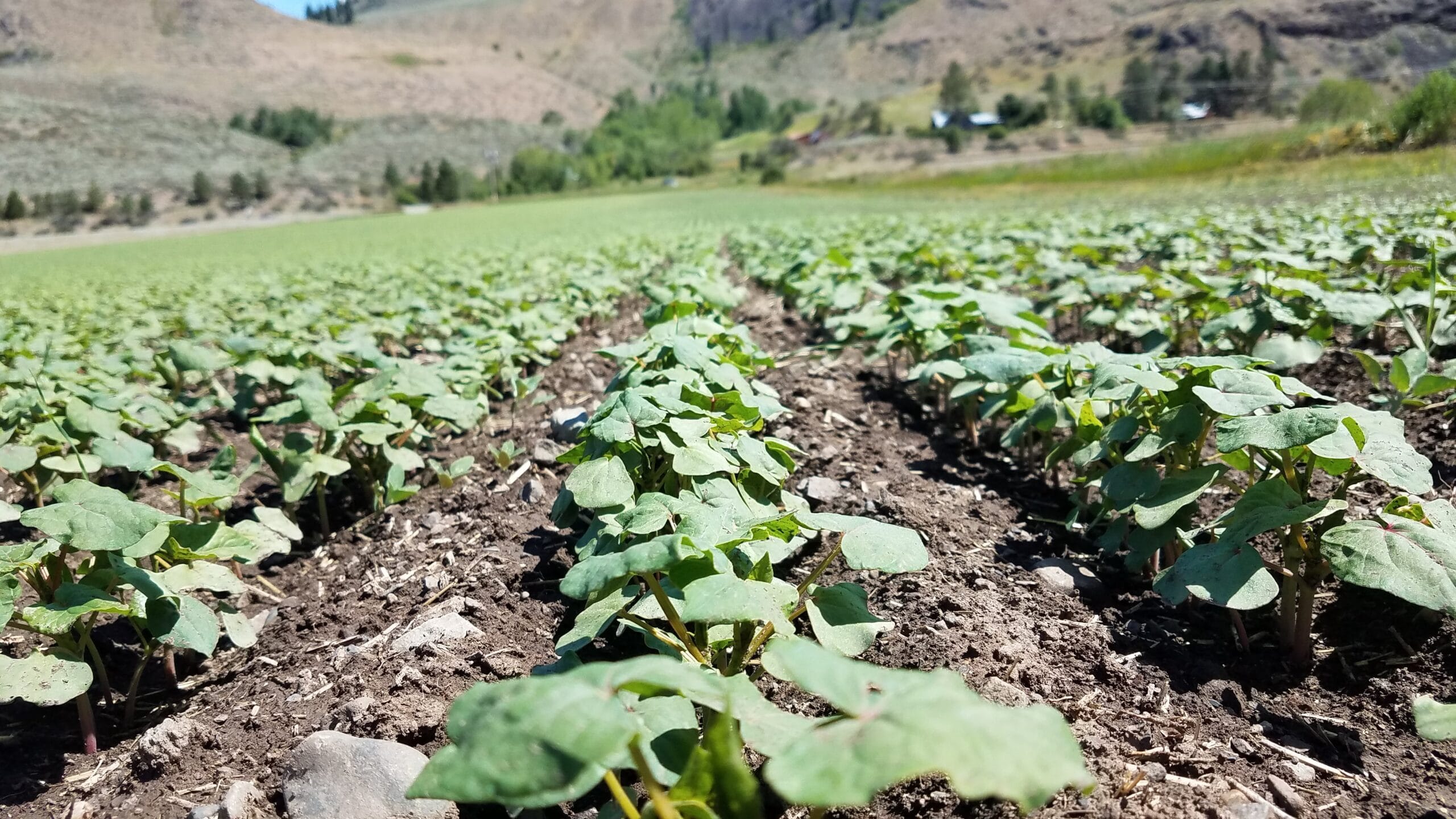
We will mow off the buckwheat and turn it under by mid-August, or within 10 or so days of flower. Then I will soil test and see if a fall grain crop seems appropriate, in this case, most likely our long lost Winter Rye! Buckwheat residue decomposes quickly but I will add some microbes to the mix somewhere along the way for good measure.
Our hard white wheat is in full pollination as I mentioned and after I shut off the supplemental water, we look at 4-5 weeks before harvest – potentially less time if skies remain clear and hot.
This is the time the plants get stressed a little bit and that is good for the grain as it will then hunt for nutrients to pull up into their kernels. I was a little disappointed in this wheat crop early on, but it is looking better by the day so…
These things keep me from dwelling too much on COVID, inequality, and the state of our nation. Mostly. If I get bored, there is always work to do at the Granary where we had a bit of a slow down for 2-3 weeks and were able to get a lot of repairs and updates completed, plus we had a wonderful and thorough cleaning day. Of the facility, not the grain! This was a bit past due following the busy busy spring.
I moved all of last year’s crop to the site up here so we have ready access. Also, we are consolidating things to make room for this year’s crop with harvest by September??
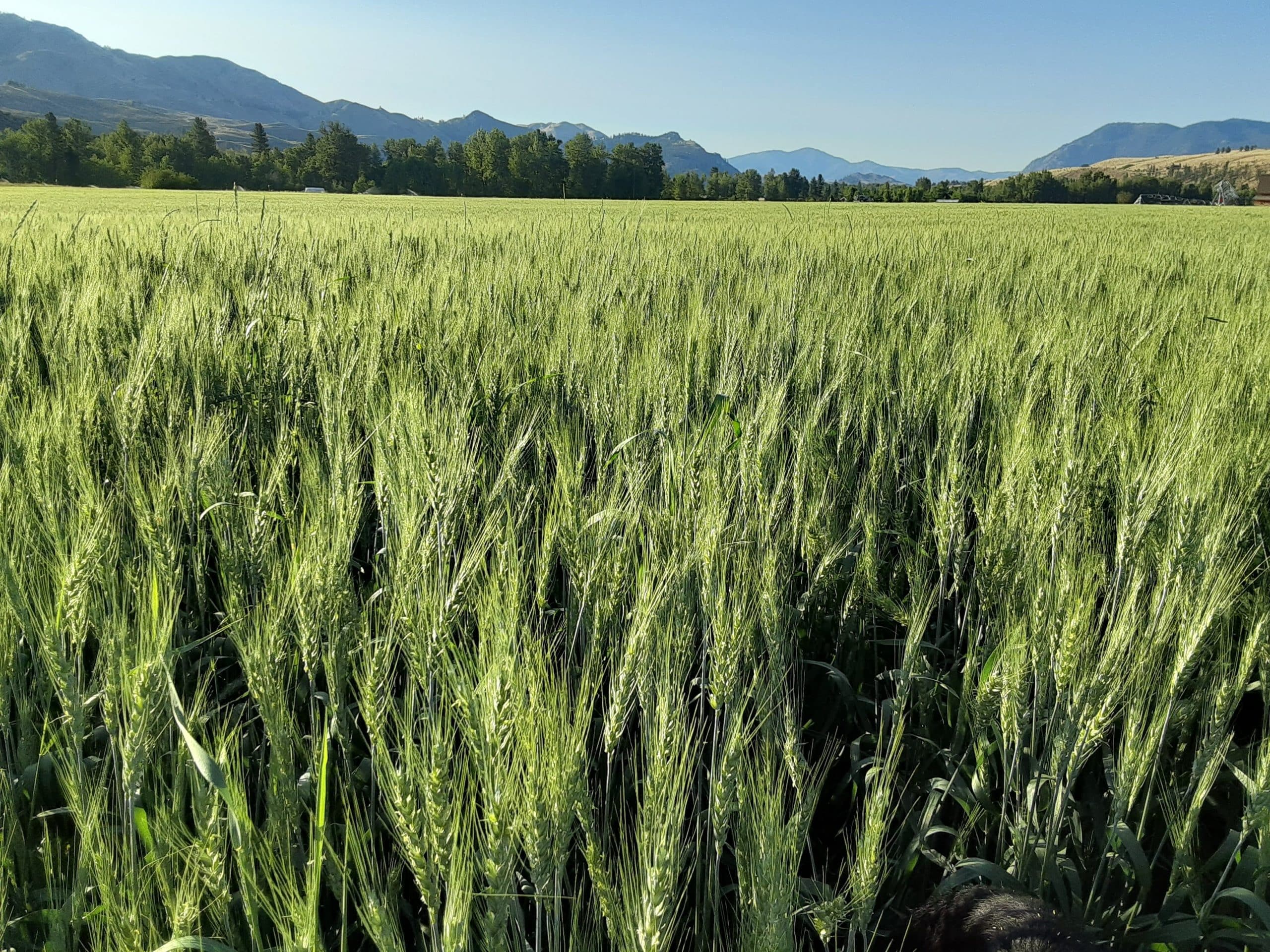
Last Sunday Brooke, Mariah, and I took a lovely dip in the Methow along with our property south of town. I’d say the temperature was perfect. As well, we’ve had a couple of meals of fresh trout rolled in cracked emmer – Mariah’s favorite! I can only hope that all you folks are finding ways to hold what you have and that you have your health to hold most of all. As we move into the “dog days” of summer let’s keep sharp enough to keep working through the widespread unease in a constructive manner.
Yours, Farmer Sam
